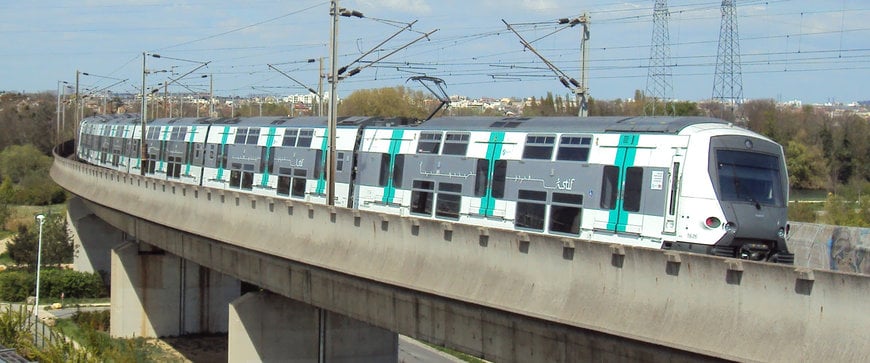railway-international.com
04
'22
Written on Modified on
Green Friction Technology - Tackling fine particle pollution in tunnels
Wabtec is tackling the challenge of reducing fine particles in tunnels on train networks through technology that drastically reduces friction brake emissions. Pollution – whether of oceans, groundwater or air – is one of the hot-button topics of our age. Reducing air pollution by car fumes has long been the primary objective of much research and development, and equally the issue of air quality in train tunnels is not a new concern.

The issue of fine particles in tunnels
It has been shown that the level of fine particles is too high in most tunnels within urban transport networks. This is a particular problem for metro users since networks are mostly underground, but there is similar room for improvement when it comes to main line trains operating in tunnels.
Passengers, often through associations, and tunnel workers' unions have regularly sounded the alarm on the subject of fine particles in tunnels. Over time it has become a real concern for train operators, who are now looking for solutions to address the issue.
Tunneling into the problem of friction
The friction brake potentially has an important role to play in improving tunnel air quality. While modern trains have very efficient electrodynamic (E/D) brakes that put less strain on the friction brake than older trains, the lifetime of the average train is somewhere between 30 and 40 years, which means it will take a years to replace the older trains with modern ones.
In addition, even on modern trains, performance of the E/D brake disappears at about 5 km/h. This means that the last few meters of deceleration still require use of the friction brake.
Wabtec has developed a range of Green Friction materials which, in addition to ensuring the required performance for various applications, can reduce the emission of brake particles by up to 90% for the finest particles (PM 2,5 and PM 1).
RATP leads the way with Green Friction
Wabtec has had various discussions with train and metro operators facing the problem of excessive concentrations of micro particles in their tunnels. One of the very first operators we are supporting in overcoming this issue is RATP, which operates both the Paris metro and suburban trains such as the RER lines.
Working with RATP, Wabtec has already assessed the material to be replaced and identified the most appropriate Green Friction material to be used. The proposed material ensures the same braking performance as the initial material, which allows a totally transparent replacement and does not require any modification of the braking system settings. Tests on the particle measurement bench have demonstrated a minimum 70% reduction in PM 10 particles, a 85% reduction in PM 2.5 particles and 60% for PM1, which are the finest and potentially most harmful particles. Based on these results, RATP has decided to launch the final qualification phase of train tests.
CONCLUSION
Full speed ahead
The development of the Wabtec Green Friction range represents a milestone on the journey towards cleaner and healthier tunnels for passengers and network personnel. Our work with RATP, both a longstanding customer and one of the world’s biggest operators, is a major step forward for us, our client and the industry as a whole. It will hopefully lead to a worldwide rollout of this technology, making rail and metro safer for everyone.
www.wabteccorp.com

